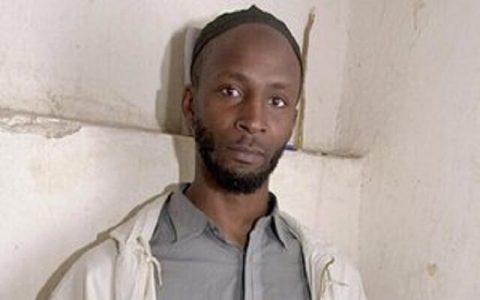
From Manchester to Iraq via Guantanamo: How Jamal al-Harith became ISIS’s latest suicide bomber
When US special forces found Jamal al-Harith in a jail in Kandahar, Afghanistan, in January 2002, he said he viewed them as his saviours. But 15 years later, including two spent in Guantànamo Bay, he was to blow himself up in Iraq on behalf of Islamic State, sworn enemies of the US.
Harith’s Guantànamo file says US officials decided to ship him to Camp X-ray at the American base in Cuba because “he was expected to have knowledge of Taliban treatment of prisoners and interrogation tactics”. He was soon to learn even more about US methods.
Harith said that during his two years at the US detention camp he was kicked, punched, slapped, deprived of sleep shackled in painful positions, given only meagre rations of water and fed on food marked as up to 12 years past its use-by date. He estimated that he was interrogated about 80 times at Guantànamo, usually by Americans but sometimes by British officials.
He was freed in March 2004, almost two years after first being cleared for release. As he and three other British men boarded the RAF aircraft that was to fly them to the UK, they say they were met by a Foreign Office official who asked: “Can you make sure you say you were treated properly?”
In a statement given nine months later, Harith claimed he had never been involved in any terrorist activity. He said: “The irony is that when I was first told in Afghanistan that I would be in the custody of the Americans, I was relieved at that point as I thought that I would then be properly dealt with and returned home without much delay.” He also said that he was still in pain as a result of the beatings he had received before interrogation.
Harith was born Ronald Fiddler in Manchester to devout churchgoing parents from Jamaica in 1966. In his 20s, he converted to Islam – an effort, his sister said, to find peace after a difficult childhood – and began travelling widely in Muslim countries.
In the early 1990s, according to the file the Americans compiled on Harith, he had travelled to Sudan in the company of a senior associate of Osama bin Laden. He also told interrogators that he had been to Pakistan, and the Americans suspected he had also been to Saudi Arabia, although he denied it.
But it was while backpacking on a return trip to Pakistan in September 2001 that Harith’s troubles began. He told US forces he had paid a lorry driver to take him to Iran, but he was stopped near the Afghan border by the Taliban. After finding his British passport, they detained him at a jail in Kandahar.
At one point, he and a number of fellow prisoners were forced to share their large cell with a horse that had offended a local Taliban leader in some way.
While the city was being bombed in October 2001, the prisoners were forced to dodge the terrified horse as it clattered around the cell.
When the Taliban regime collapsed the jailers fled, but Harith and a number of prisoners remained at the prison, where they were being fed. It was here that he was discovered by a journalist from the Times, who alerted staff at the newly reopened British embassy in Kabul, believing they would arrange his repatriation.
Instead, Harith was detained by US forces, first at their own detention facility in Kandahar, and then at Guantànamo.
His Guantànamo file, which was among a large cache of documents later passed to WikiLeaks, shows that the camp authorities quickly reached the conclusion that he had no connection with the Taliban or al-Qaida but decided against releasing him because his “timeline has not been fully established”, and because the British diplomats who had seen him at Kandahar had found him to be “cocky and evasive”.
After his return to Britain, Harith was paid £60,000 for a joint interview with the Mirror and ITV describing his ordeal. He also launched a compensation claim against the British government that, it was reported, netted him up to £1m.
But a decade later, in 2014, and despite his high profile, Harith was able to travel to an ISIS-controlled region of Syria. His wife told Channel 4 News the following year that she and her children had followed him there in a failed bid to persuade him to return home. She said she was only able to escape after paying smugglers.
Last year, a fellow Guantànamo detainee, Ahmed Errachidi, said he was surprised to hear that Harith had gone to join ISIS. But, he added: “In Guantànamo you find a lot of people who had nothing to do with anything the British or the Americans were claiming. They were the scapegoats. What they are going to do after Guantànamo, I can’t speak for them.”
Source: /The Guardian





